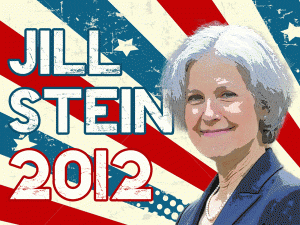On the brink
Patriotism hasn’t been a standard stance of the Democrats, and especially not of their left flank. But front and centre issues in this election – freedom and democracy – are two words that have become the mantra of the Democratic standard bearer, Vice President Kamala Harris. There may be many reasons for this transformation, or this embrace, but I would venture that the main reason is that a second Trump presidency is so profoundly dangerous to the notions of democracy and freedom that make the United States the nation that we are. These two notions are intertwined – the American experiment is one that put the citizen at the core of our national experience. Our very citizenry is at risk.
The battle lines are drawn. This will be a close election, way closer than it should be, considering the credentials of the two candidates – Vice-President Kamala Harris and former president and convicted criminal Donald Trump. But America is a divided nation, with a profoundly dangerous fissure among a disenfranchised white working class conjoined with a cynical white business class, versus, well, the rest of us.
It’s perhaps extraordinary that we have never since our founding seen our freedom and democracy at risk as we do now. The Republican candidate Trump has made clear that if he is re-elected, he will put in jeopardy everything from the right to vote to the right to an abortion, the right to read what you want and the right to teach in the classroom even the most basic of civics lessons. His plans are so massive that there is very little that will be left off his agenda.
It’s important to understand that the Trump candidacy is the tip of a movement in America that seeks to take us backwards. With a Republican party totally in his grip, and a determined activist base, this is an anti-freedom movement that must be squashed so that the United States can fulfill its most basic self-professed promise of democracy.
The blueprint for a second Trump term is found in a massive document called Project 2025 prepared by the right wing Heritage Foundation. Among the policy plans are defunding of the Corporation for Public Broadcasting, shuttering of the Department of Education, so that “education decisions are made by families,” along with the gutting of the national public education system.
Abortion of course is at even more risk than it is already, since we are living with the legacy of the first Trump campaign and his packing of the US Supreme Court with anti-choice justices. There is a proposal by the Trump campaign to create a National Anti-Abortion Coordinator while also forcing states to report on women’s miscarriages and abortions. (In some states, doctors are already at legal risk for providing health care to pregnant women). He has endorsed using the Comstock Act, a 19th century relic that censors free speech, to enforce abortion by making it a crime to promote or receive abortion pills across state lines.
The freedom to learn is already at risk, also a legacy of the first Trump term. Imagine things to get so much worse if there is a second term. According to PEN, the writer advocacy group, “Since the fall of 2021, PEN America has counted over 10,000 book bans in schools across the country. The full impact of the book ban movement is greater than can be counted, as ‘wholesale bans’ in which entire classrooms and school libraries have been suspended, closed, or emptied of books, either permanently or temporarily, restricted access to untold numbers of books in classrooms and school libraries Overwhelmingly, book banners target stories by and about people of color and LGBTQ+ individuals.”
This has trickled down into communities all across America. Teachers are afraid to teach in classrooms across the country (see p102). Public school and small town libraries are being stripped of books deemed inappropriate by those who want to limit knowledge. School boards are among the fiercest election platforms, often with groups that appear to be grassroots but are otherwise funded by those allied with the Trumpist movement.
And finally, at risk is that most basic of rights, the right to vote. The USA is already the most repressive democracy in the world regarding access to voting. Under a Trump regime, it will become even more so.
Trump, as we know so well, tried to steal the last election. Now, under plain sight, he and his allies are plotting to do the same – packing electoral panels and trying to manipulate state election laws. There will be key challenges in states known as battleground states that could go either Democratic or Republican, like Georgia and Arizona. The arcane system of the electoral college is vulnerable to this manipulation in ways we never have seen before Trump’s emergence on the world stage. To challenge this, the Harris campaign has added an army of lawyers. Their immediate focus is to challenge the right to vote in key states where the Trump campaign is litigating against it. The second focus will be on the myriad of challenges that Trump plans to throw up regarding the actual vote count and legitimacy of the vote itself. As the New York Times recently reported: “The battle over whose votes count – not just how many votes are counted – has become central to modern presidential campaigns,” as a legacy to the Trump phenomenon.
When the election results are challenged, the deciding bench will be the US Supreme Court, the most conservative and anti-democratic court in our nation’s history. Were he to win a second term, his legacy would impact generations far into the future.

 Index’s Sara Yasin spoke to the candidate about free speech in America, and the challenges she’s faced as a third party candidate in the Presidential race
Index’s Sara Yasin spoke to the candidate about free speech in America, and the challenges she’s faced as a third party candidate in the Presidential race